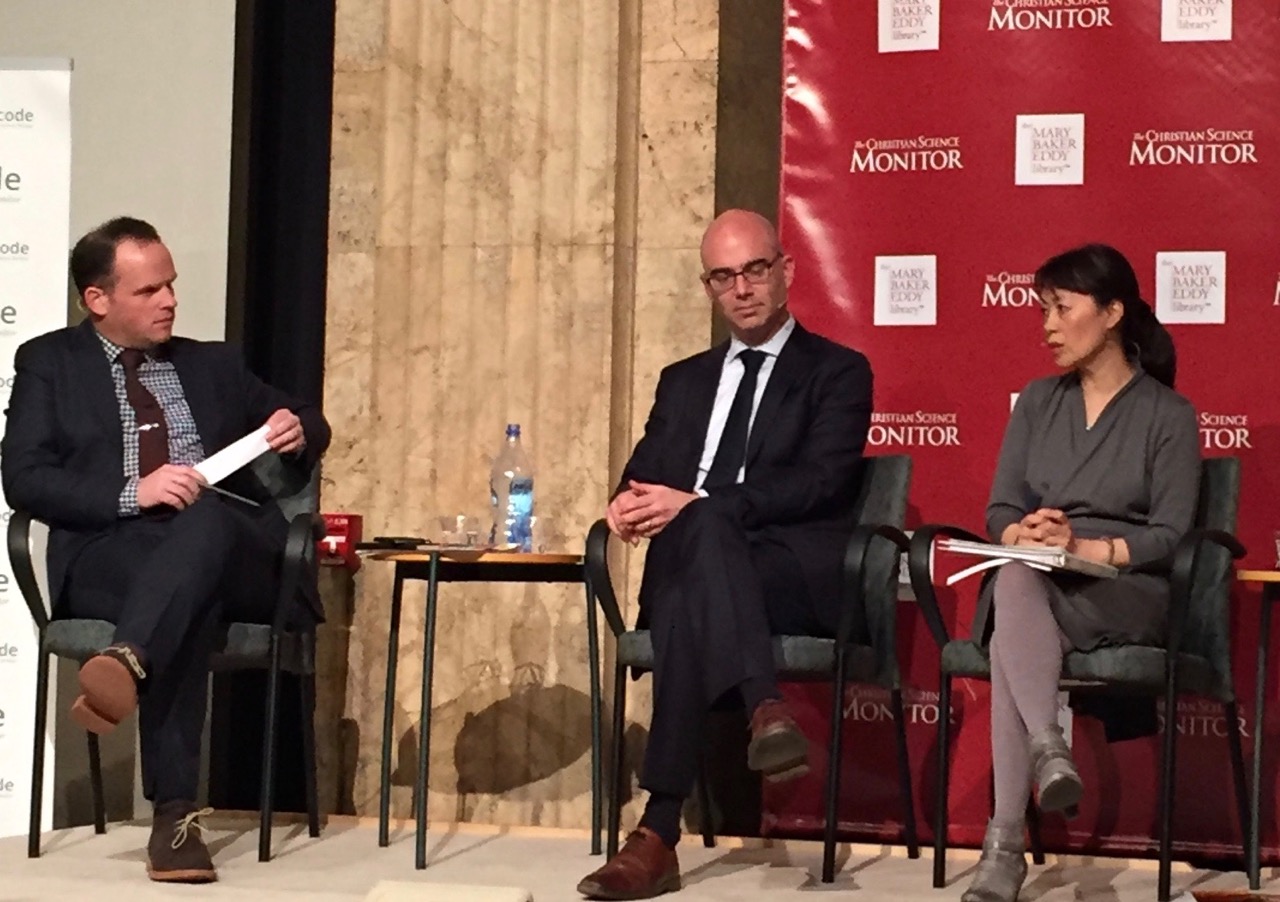(12th Feb 2016) Dick Pirozzolo – Managing Director of Pirozzolo Company Public Relations shared his view about how China thinks about cyber-security. Dick Pirozzolo serves on the editorial board of Boston Global Forum and is co-author, with Michael Morris, of a forthcoming novel that takes place in Vietnam during April of 1975.

Read his view below
Why China hacks may be more in the Communist Party’s DNA and view of the Internet than anything else, according to Sharon Hom, executive director of Human Rights in China, a Chinese Non-Government Organization. Hom spoke during a recent panel discussion organized by the Christian Science Monitor in Boston.
Hom explained, “While in the US and most of the world, citizens regard the Internet as a big open international and transparent communication phenomenon,
the Communist Party wants control of society and information. Though it is not a linear path from censorship and control to hacking the Internet, the Party needs to manage expression online.” In China, “Cyber security means security of the Party.”
The event was organized, in part, to promote the Monitor’s online section Passcode which it bills as a field guide to security and privacy.
When it comes to establishing international norms for Internet behavior that would presumably reduce hacking, Hom is not optimistic pointing out that whenever norms come up, China, Iran, Russia, Pakistan and other bad actors, unite to pose obstacles in a, “race to the bottom.”
In sharp contrast to these nations, Boston Global Forum has recognized Japan, host of the next G7 meeting in March, for supporting international norms. Commenting on the Forum’s international ethics code of conduct, Japan’s Prime Minister Shinzo Abe told Boston-based think tank members: “Japan will continue to cooperate closely with the US and other partners … while playing a leading role in achieving the peace and stability of the international community.”
In addition to Japan and the US, G7 nations include Canada, France, Germany, Great Britain, and Italy.
Panelist Adam Segal added, that the Chinese government sees the Internet from the perspective of “cyber sovereignty and as an entity that the government can develop as it sees fit.”
Segal, director of the Digital Cyberspace Policy Program at the Council on Foreign Relations emphasized that a big part of China’s incentive to hack other nation’s computers is to obtain intellectual property from foreign companies. Segal told attendees, “China does not want to be the factory of the world and is worried about the future of technology.” For example, “While China probably manufacturers all the DVD players sold in the world, the head that reads the disc is proprietary and owned by companies in Japan.”
Though China’s theft of 22 million personnel records from the Federal Office of Personnel Management is well known, private companies have been closed mouthed about such intrusions until Google announced, “We’ve been hacked along with 30 other companies,” according to Segal. Segal also reported on a hack of Boeing’s computer’s a few years ago in his cover article titled: Why China Hacks the World, in the February 1, 2016 edition of The Christian Science Monitor Weekly.
In addition to stealing intellectual property to gain technological advantage, China is also engaged in what Segal called the world’s oldest profession “espionage” and strives to obtain secrets about the F22 and F35 fighter jets and other weapon systems. China also uses hacking as a form of external censorship by “intimidating reporters, “ who write articles unfavorable to this nation of 1.4 Billion.
“Is there bad hacking and good hacking?” asked moderator Mike Farrell, editor of the Monitor’s Passcode publication. Panelists agreed that government-to-government spying is considered acceptable, but for a government to hack into another country’s businesses steal the information and pass it to companies inside its own borders is outside any acceptable norm.
Michael Sulmeyer, director of the Belfer Center’s Cyber Security Project at the Harvard Kennedy School, pointed out that the current state of cyber security “is like leaving a bag money on your front lawn and being stunned to learn that someone stole it during the night. At least make harder. Make them work. Make sure it’s not the jayvee team but that the varsity team is needed hack into your systems.”
While it might be comforting to think about like-kind retaliation, it is not always possible. Segal explained relationships between the US and China are complex and come with competing values, “Fifty percent of Apple’s revenue comes from China. One of the worlds biggest technology companies is not likely to want heavy-handed retaliation.”
Though Hom devotes much of her time to combatting cyber hacking and theft, she says people in her office continue to ignore fundamental security measures and continue to, “stick Post-it notes to their computers containing their passwords, because they have so many to remember.”
“Cyber defenses though are a stopgap. The real solution is more evolutionary,” says Hom and will come about, ‘When governments like China stop using the Internet as a tool of social engineering.”